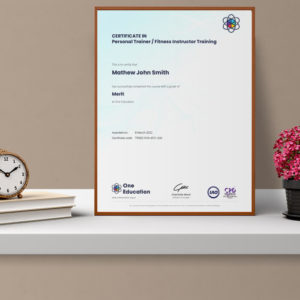Academic writing style needs a few skills and considerations. It is not as simple as writing a general essay or blog.
Students and scholars rely on a range of resources to write like a pro. An app that writes essays for you sounds good, and top apps can provide online essay help.
However, in addition to using essay writing apps, you should develop your capabilities to improve your Academic writing style. Here are a few proven tips to write in an academic style that impresses your professors and scholarly circles.
Read Journals and Articles for Academic Writing
Scholars follow certain conventions and principles to write academic papers. You can pick up these elements by reading research papers, journals, and articles.
A convenient place to find such papers is Google Scholar. You can enter any query or keyword in the search bar to get popular publications on your topic.
A few other well-known platforms are:
- ResearchGate
- PubMed Central
- JSTOR
- Digital Commons Network
- University websites
Observe how authors write when you read the journals. We will also cover some of the considerations in our tips below.
Be Formal
Avoid being casual in your scholarly articles. Use a formal tone and language throughout your paper.
Therefore, you should not use abbreviations like “isn’t,” shouldn’t,” or “can’t.” Moreover, avoid “etc” and choose “for example.”
Additionally, be judicious with your punctuation. For example, authors rarely use the exclamation mark in their works.
It can make their ideas appear too exciting or unsophisticated.
Moreover, learn the proper usage of elements like dashes and hyphens. The former is ideal to present an explanation after a fact or information. The latter is helpful to connect words or form compound phrases.
Don’t Be Ambiguous
Ambiguity has no place in scholarly writing. You should always be clear about your ideas and choose your words wisely.
For example, don’t use:
- Words like “things” or “stuff” – mention the things clearly
- Phrases like “sort of” or “a bit of”
- Words such as “etc” – mention what you mean
Moreover, focus on forming clear statements. Don’t use questions too much to create engagement. That is not the goal of academic papers, says Angelina Grin, a writing expert at Studybay.
Always make an effort to stay objective. If you use a question, always provide an answer after it.
Provide Evidence
You should always provide evidence to back up your claims and arguments. It is a must for academic writing and is implemented via citations.
Let’s say you are doing a journal on the effects of social media on the mental health of teens. You write:
“Social media may expose young populations to cyberbullying, resulting in self-harm.”
However, you have not provided any evidence or research for your claim.
So, cite research from the resources you used to create your project. A journal you can use for this example is:
Nesi, J., 2020. The impact of social media on youth mental health: challenges and opportunities. North Carolina medical journal.
In your text, you will write:
“Social media may expose teens to cyberbullying, resulting in self-harm (Nesi, J., 2020).”
Moreover, include the resource in your reference or bibliography.
Question Your Arguments
Research journals dissect and examine complex concepts and knowledge. Therefore, it is common to come across varying ideas about a topic.
In our example above, we have evidence to show social media has the possibility to harm teens’ mental well-being.
However, you should not state that as an ultimate. Try to find out if there are conflicting views on the statement.
“According to studies, social media provides a supportive environment for teens. It helps them form social relationships and friendships.
Therefore, sites like Facebook may not be completely bad for mental health.”
As a scholar, your job is to evaluate the validity of all claims to write a sound paper. So, weigh conflicting views and present your opinion. Learning to write persuasively can help.
Avoid Bias
Bias is not uncommon in research. It can occur at any stage of the process and refers to a deviation from truth.
Researchers can become victims of bias during the:
- Data collection
- Analysis
- Interpretation
- Publication
Worst of all, bias is not always unintentional. So, it is a must to maintain transparency and accuracy in your work.
Moreover, you should determine the validity of the resources and references you are using.
Additionally, it is unethical to present biased research. For example, a person may believe in the ideas of dictators like Adolf Hitler and write a journal promoting their ideologies.
It is necessary to assess your own ideas and understanding to detect any bias and take steps to avoid them.
Be Consistent
Academic writing style follows certain formats like:
- APA
- MLA
- Harvard
- Chicago
Students don’t usually have a choice when it comes to selecting a format. Their colleges or universities generally prescribe a format to follow.
However, scholars and researchers are free to choose their formats. They come with varying nuances like the use of citations, footnotes, or bibliographies.
Therefore, you must learn about the format you want to use for your academic writing. Additionally, be consistent throughout your work and use the same style.
Moreover, use the same spelling (US, UK, and Canadian) and avoid mixing them.
Create an Outline
Always create an outline for your academic paper. It helps you stay on course and prevents you from missing out on any important ideas or information.
You don’t need to create a detailed outline. Just work out the sections you will have in your article.
Moreover, list the key concepts or arguments you will make in each section. It is also a good idea to list the links of the journals and books you will need to write your paper.
You don’t have to search around later when you need to look for certain information.
Proofread Your Work
The last step is to proofread your academic essay before you make your submission or publication. However, you don’t have to manually find out every spelling or grammar mistake.
Essay writing apps like Grammarly help you proofread your work and detect errors automatically. You also get suggestions to improve your Academic writing style and appeal.
It is also possible to set goals and optimize your text for more professionalism.
Additionally, make sure your paper is complete with all sections and resources, like:
- Title page
- Abstract
- Introduction
- Methodology
- Discussion
- Footnotes
- Citations
- References
Final Thoughts on Academic Writing Style
Keep your work professional and avoid being wordy. You should also prevent repetition and rely on vocabulary you are familiar with.
It can be helpful to maintain an active voice and vary your sentence structure. Moreover, keep our tips in mind to become an expert academic writer.
Be formal and stay away from ambiguity. Additionally, question your arguments and provide evidence to back up your claims and ideas.




 Get A PDF Certificate & Transcript After You Complete Your Course
Get A PDF Certificate & Transcript After You Complete Your Course 



 November 20, 2023
November 20, 2023
















